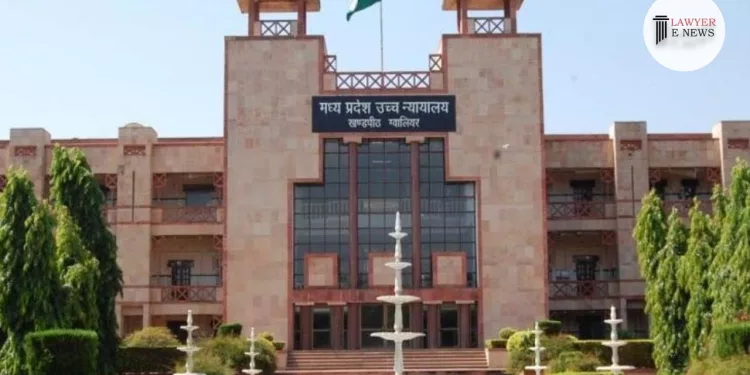No Mens Rea, No Crime: MP High Court Quashes FIR in Land Sale Cheating Case

The High Court of Madhya Pradesh, in a recent judgment, quashed the FIR against Rajkamal David Lall and Ajai Lall, involved in a land sale dispute, emphasizing the necessity of proving mens rea for criminal liability. Justice Gurpal Singh Ahluwalia highlighted the absence of guilty intent in the petitioners’ actions, stressing that the correct declaration of land use in revenue records negated allegations of stamp duty evasion.
Petitioners Rajkamal David Lall and Ajai Lall inherited a piece of land in Damoh, Madhya Pradesh, which they sold through three registered sale deeds in 2019. The dispute arose when the Collector of Stamps imposed a penalty of Rs. 76,21,259 on the purchaser for deficit stamp duty, alleging the land was sold as residential property instead of commercial. Subsequently, an FIR was registered by the Economic Offences Wing (EOW) under Sections 420 and 120-B of IPC, accusing the petitioners of misrepresenting the land to evade stamp duty.
The court noted that the land was recorded as residential in the revenue records, and no orders had been passed by the revenue authorities to change its classification from residential to commercial. Justice Ahluwalia emphasized, “The declaration made by petitioners in the sale-deed that the land in dispute is a residential land, cannot be said to be an incorrect declaration.”
The court delved into the concept of mens rea, explaining its necessity for establishing criminal liability. “Mens rea deals with the guilty mind; therefore, in order to establish it, the intention on the part of the accused must be established,” noted Justice Ahluwalia. The judgment reiterated that without mens rea, the act in question cannot be considered criminal, thus quashing the FIR against the petitioners.
Justice Ahluwalia elaborated on the legal principles governing criminal liability, citing precedents and statutory provisions. The court referred to the judgments in cases like Neeharika Infrastructure Private Limited v. State of Maharashtra and Gopaldas Udhavdas Ahuja v. Union of India, emphasizing the non-interference of courts at the investigation stage unless there is a clear miscarriage of justice. The court also highlighted that the liability to pay stamp duty lies with the purchaser as per Sections 29 of the Indian Stamp Act and 55 of the Transfer of Property Act.
Justice Ahluwalia remarked, “The absence of mens rea would negative the condition of crime. Mens rea is the essential ingredient of criminal liability.” The judgment also underscored, “Once there is no mis-description about the nature/land use of the land in dispute in the sale-deed executed by petitioners, then whatever civil liability may be, it cannot be said that the petitioners were having any mens rea to facilitate the purchaser in any manner to evade the stamp duty.”
This judgment underscores the judiciary’s commitment to ensuring that criminal liability is not imposed without clear evidence of mens rea. By quashing the FIR against the petitioners, the High Court reaffirmed the importance of intent in establishing criminal acts under IPC. This decision is anticipated to influence future cases involving similar disputes, reinforcing the legal framework that differentiates between civil and criminal liabilities.
Date of Decision: May 28, 2024
Rajkamal David Lall & Anr. v. The State of Madhya Pradesh & Ors.






